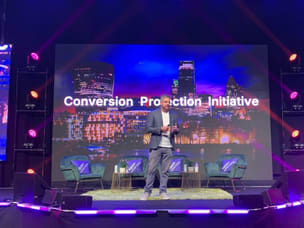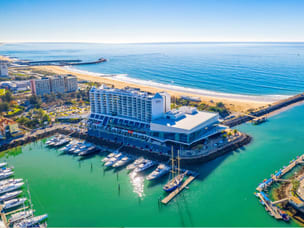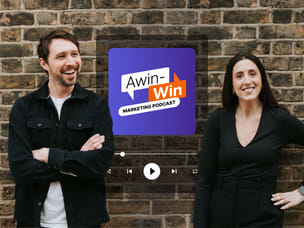
BrandSwap Opens New Acquisition Channel at Morrisons
New partnership creates valuable opportunities for Awin advertisers looking to target millions of customers at major UK retailer.


New partnership creates valuable opportunities for Awin advertisers looking to target millions of customers at major UK retailer.

The initiative advocates for ethical growth and sets industry standards for fairness and transparency in affiliate marketing. Now, it’s transforming advertiser and affiliate performance, delivering long-lasting value for businesses.

The 9th GPMAs delivered an incredible celebration for the global performance marketing industry, with Awin claiming four awards.

Just a few months after the launch of our CPI, Awin CEO Adam Ross explains how the initiative has already changed the affiliate industry.

Awin has been shortlisted for 11 Global Performance Marketing Awards, commending our campaigns, tech, and expertise.

The partnership makes it easier than ever for brands to pursue circularity, enabling advertisers to accelerate sustainability initiatives and revenue

Awin announces its expansion into Mexico, empowering its partners to scale their businesses with new audiences and local partnerships.

Awin has been recognised as one of the UK’s best places to work for the third consecutive year and was honoured with the title of ‘Best Big Place to Work’ in Marketing & Advertising.

Awin takes home Affiliate Network or SaaS of the Year along with gold prizes for programme optimisations and use of technology.

We’re a finalist in several competitive categories and looking to win Affiliate Network or SaaS of the Year for the third year running.

Awin just made it easier for Chinese advertisers to expand globally through a new partnership with Fanli.

This year marks a monumental milestone for Awin and the affiliate marketing industry as we come together to celebrate 25 years of growth, innovation, and collaboration.

Announcing the launch of our Awin Agency Advisory Board.

Awin’s Conversion Protection Initiative (CPI) has inevitably provoked a lot of questions from affiliate marketers. Awin’s CEO answers some of the most common ones in this video interview.

We are thrilled to announce that Rory Sutherland, a globally sought-after keynote speaker, will be a headliner at Global ThinkTank.

With affiliate tracking facing an increasing number of challenges, Awin CEO Adam Ross shares a new approach that aims to address these issues.

As part of the new sustainability journey of Awin Global we are happy to announce that Awin has endorsed and signed the UN global Compact and its 10 principles covering human rights, anti-bribery and environment.

The affiliate industry is losing significant ad revenue every year due to poor tracking setups. Today, Awin launches a new initiative designed to remedy that.

Dive into a sneak peek of the agenda for our incredible multi-day event, taking place in Vilamoura, Portugal, May 2025.

We’re happy to announce that thirteen of our entries have been shortlisted including Global Affiliate Network or SaaS of the Year and One to Watch.

Awin is excited to announce its new podcast, Awin-Win Marketing Podcast, offering you an inside view on the most innovative affiliate partnerships.

Last week we transformed The Brewery in London into an overgrown tropical jungle and celebrated together with our clients.

We have exciting news for Global ThinkTank 2025, where we will have the privilege of hosting an extraordinary keynote speaker.

Discover how our Summer Release empowers businesses of all sizes, igniting success and vibrant partnerships with affiliates.